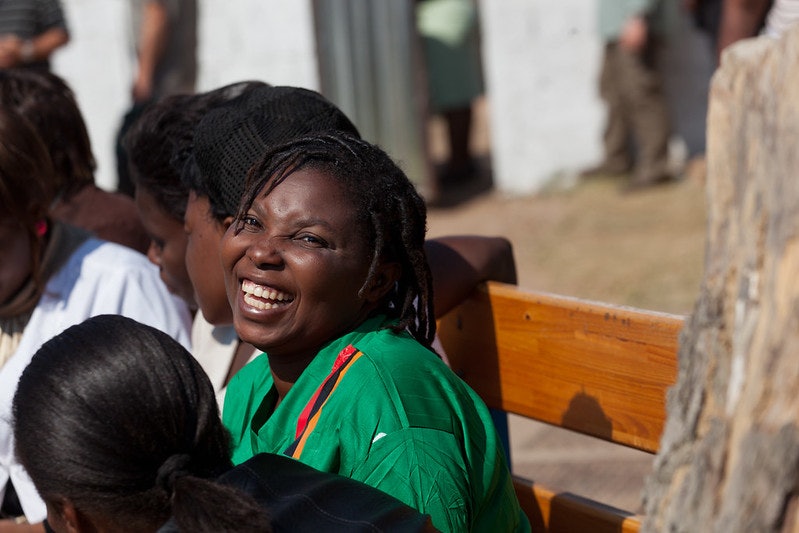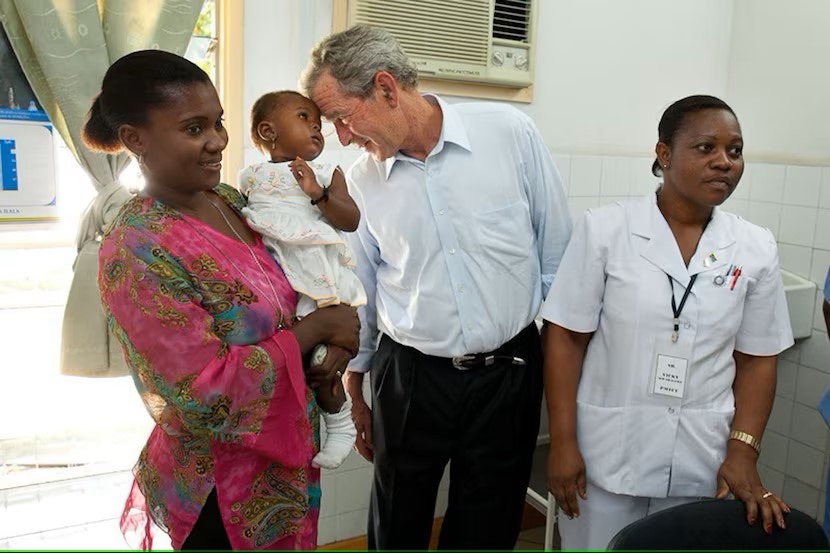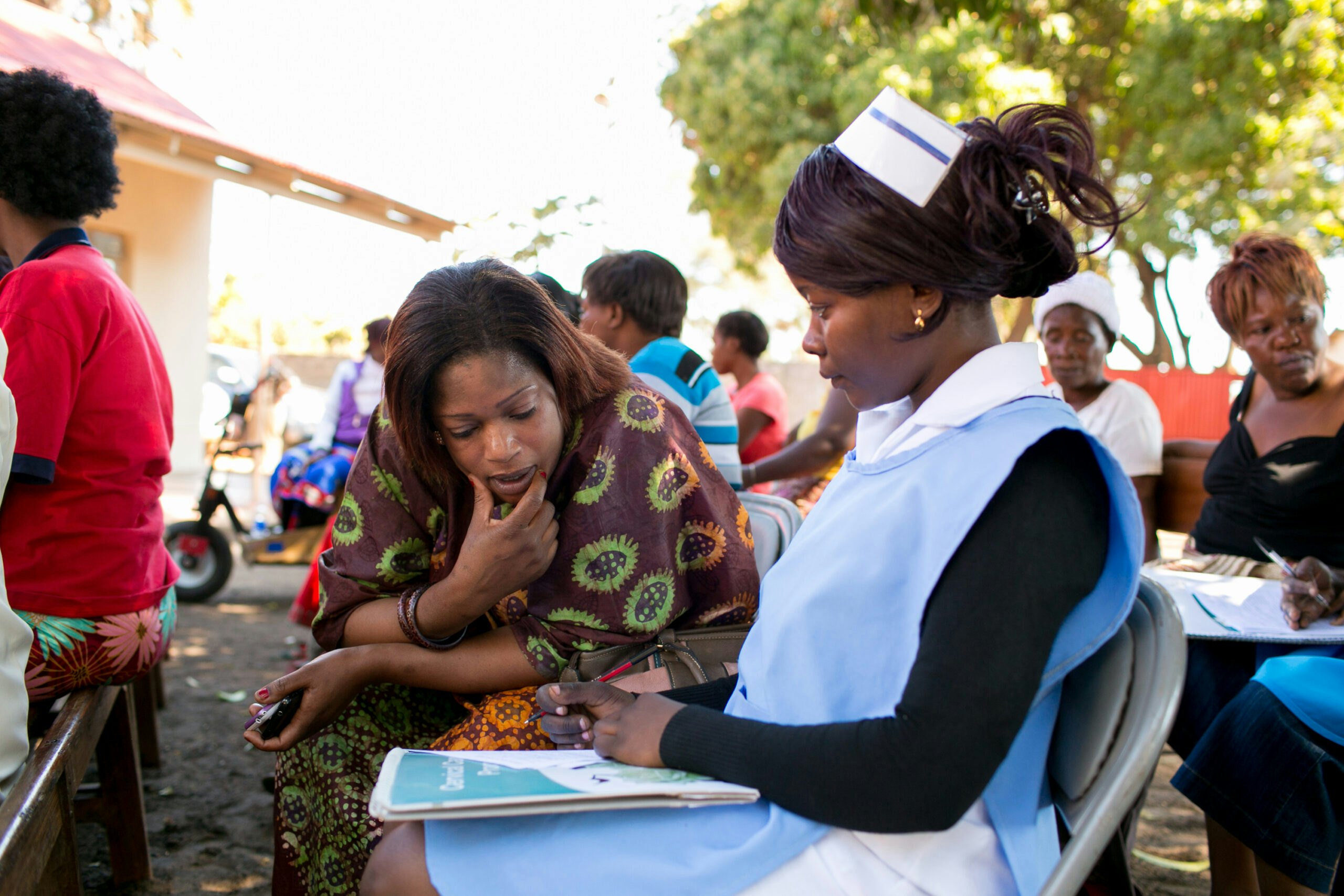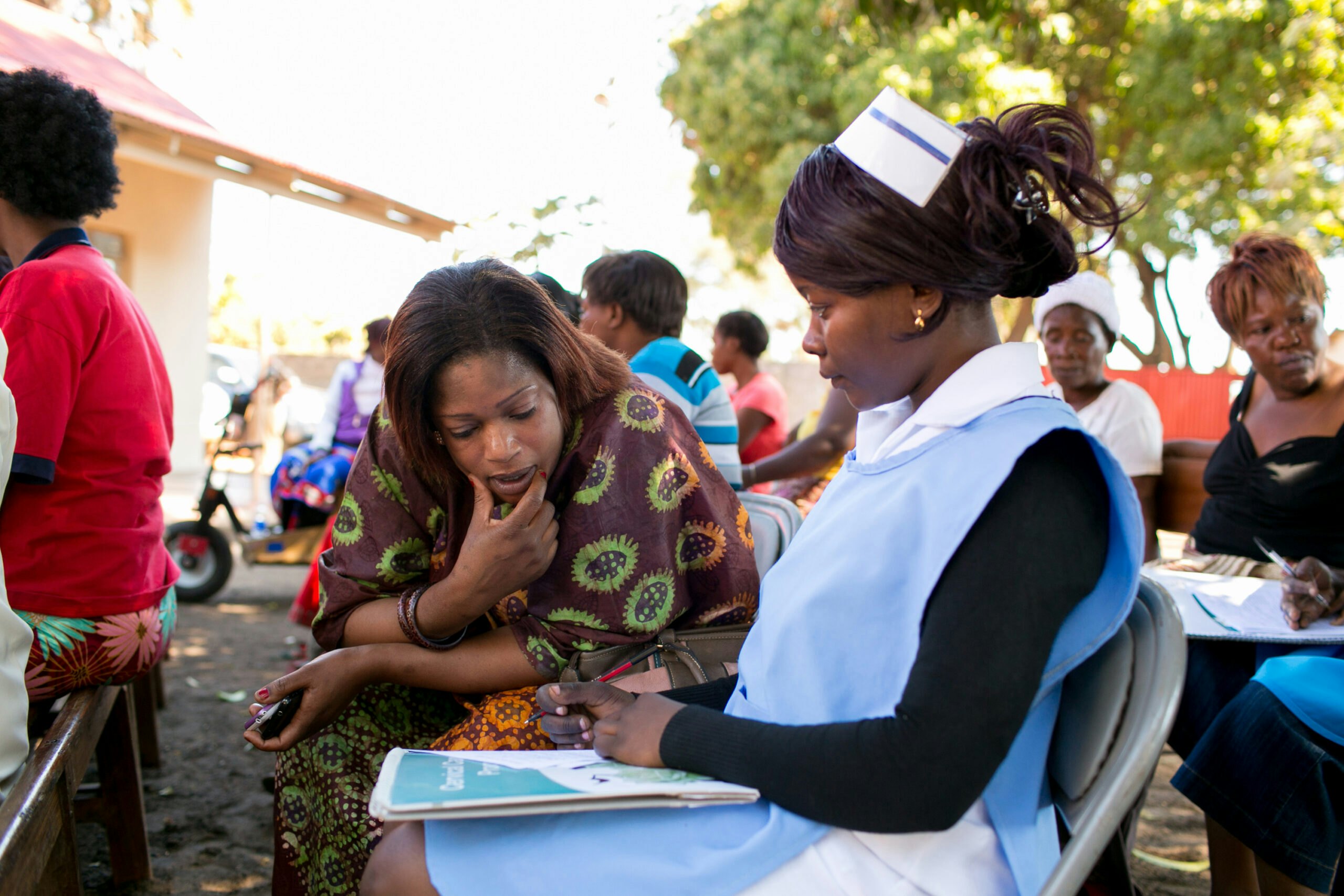The George W. Bush Institute’s Global Health Program Manager Hannah Johnson shares her experience traveling to Namibia for a Go Further partner visit and the incredible work being done in the country to end HIV/AIDS as a health threat by 2030.
Women living with HIV are four to six times more likely to develop cervical cancer. Namibia’s cervical cancer program was a natural complement and outgrowth of the HIV screening and treatment initiatives that the country previously established as a partner in the President’s Emergency Plan for AIDS Relief (PEPFAR). The country’s cervical cancer work is part of the Go Further public-private partnership – established in 2018 by PEPFAR, the George W. Bush Institute, UNAIDS, Merck, and Roche – that collaborates closely with governments.
Lisondry Haoses is a nurse working to save women’s lives by screening and treating them for cervical cancer at the Epako Clinic, a government health facility in Gobabis, Namibia. The clinic represents one of many facilities across the country that work to Go Further for women.
I was honored to hear about Namibia’s successes in combatting cervical cancer firsthand when I met with Haoses in August during Go Further partners’ visit to practitioners and beneficiaries of the program in Namibia.
In Namibia, all sexually active women are encouraged to go for cervical cancer screening starting at age 20 if they’re HIV-positive and 25 if they’re not. All women on HIV treatment are referred to the screening service. Between 2019 and 2022, the country’s Cervical Cancer Prevention Program (CECAP) conducted over 53,000 screenings for cervical cancer, over 61% of which were among women being screened for the first time.
Namibia is increasing women’s access to cervical cancer screening and treatment services through support from PEPFAR, the U.S. Centers for Disease Control and Prevention (CDC), and implementing partners such as the International Training and Education Center for Health (I-TECH) and Development Aid from People to People (DAPP). In June, Haoses’ clinic had over 1,000 women living with HIV between the ages of 20 and 49 actively enrolled in HIV care and treatment services.
Haoses is a modern-day superwoman, and it’s easy to see that she loves her job. She reaches women from various backgrounds and has an intense dedication to save their lives. During a conversation with her, she told me that the most important thing she can do is create a trustworthy bond with her clients to ensure that they’re informed, cared for, and comfortable. She’s committed and dedicated to providing cervical cancer screening in Namibia’s Omaheke region.
The country is vast and has limited transportation options. This impacts clients’ ability to easily access services or practitioners.
Namibia has a population of over 2.7 million people in 14 regions and most Namibians live in rural areas, often “footing it” some distances to work, the market, the clinic, or school. On top of all that, it has 13 recognized national languages.
Namibia is one of the original Go Further partner countries. Over half its population is female and, as of 2022, 95% of people living with HIV knew their status, 97% were on treatment, and 94% were virally suppressed. That makes the country among the first to reach global 95-95-95 targets for screening, treatment, and viral suppression by 2030.
As the only program-dedicated nurse trained in VIA screening in Omaheke, Haoses travels across the region with ministry outreach teams and supporting partners to reach women at nearby satellite clinics – sometimes over 100 miles – to provide screening and treatment services. It’s an incredible feat for one woman.
Haoses’ clinic began using the current primary screening method, VIA (visual inspection with acetic acid), in 2020. She was one of many nurses recently trained in the method. She’s also trained in thermocoagulation treatment, a minimally invasive procedure that quickly treats precancerous lesions, often on the same day as diagnosis.
Health care staff and community workers schedule appointments in advance, which is convenient for both the patient and the provider. In instances when the client fails to show up for her appointment, community workers will go into the villages, connect with the woman, and find the best solution to get her into the clinic. Since women often have trouble making appointments because they don’t have transportation to the facility, both I-TECH and DAPP go the extra mile and help provide rides whenever possible. Haoses also encourages clients to do their follow-up screen – a program that’s free of charge through the Ministry of Health and Social Services and supported by PEPFAR.
Since starting her job three years ago, Haoses has connected with a valuable network of nurses throughout the country providing similar services, sharing notes, discussing the best way to treat cases, and working through challenges. Haoses said that without funds from PEPFAR, she couldn’t reach her clients to provide screening and treatment either on site or outside the clinic.
The training and funding provided by PEPFAR for VIA screening and cervical cancer treatment has allowed the clinic to save many lives and is the most significant milestone in Namibia for cervical cancer, she said. If she had one wish for the future of the program, it would be for continued PEPFAR support to get more women into care and save lives.






























